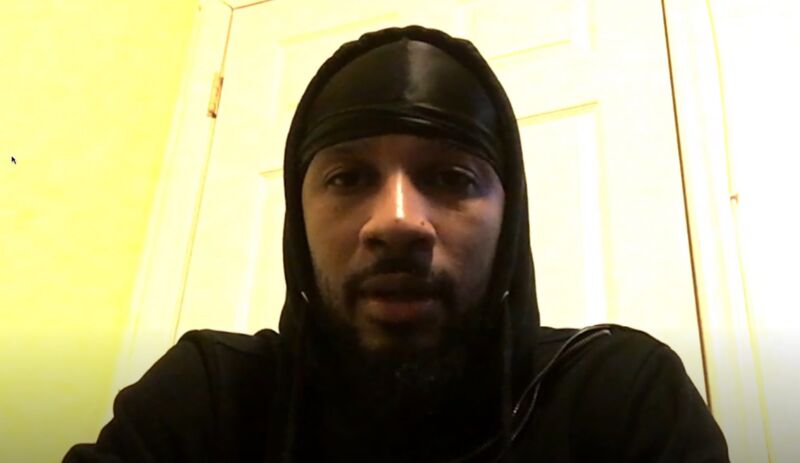
Amazon was eager to make warehouse manager Chris Smalls the face of worker activism at the company, an internal memo shows. The memo was leaked to Vice, which published excerpts of the document on Thursday.
“He’s not smart, or articulate, and to the extent the press wants to focus on us versus him, we will be in a much stronger PR position than simply explaining for the umpteenth time how we’re trying to protect workers,” wrote David Zapolsky, Amazon's general counsel. Zapolsky was summarizing discussions at a daily meeting of senior Amazon executives focused on the coronavirus crisis. Vice reports that Amazon CEO Jeff Bezos attended the meeting.
Smalls was a manager at an Amazon fulfillment center on Staten Island, New York. It's one of Amazon's largest facilities, with around 5,000 workers. On Monday, Smalls was one of a number of workers—Amazon says 15, organizers say 60—who walked off the job to protest what they saw as inadequate precautions for worker health.
The workers claimed Amazon had not been transparent about the number of coronavirus cases at the factory. They were demanding that Amazon shut down the facility for a deep cleaning and to take more precautions to protect worker health once the facility reopened. (Amazon says it has already "taken extreme measures to keep people safe.")
“Make him the face of the entire union/organizing movement”
Amazon fired Smalls the day of the walkout. Smalls said this was in retaliation for organizing the walkout. Amazon disputed that, telling Ars that Smalls had been fired for ignoring instructions to self-quarantine, with pay, after coming into contact with a coworker who tested positive for the coronavirus.
In a CNBC interview later the same day, Smalls said that prior to his firing, he had been coming to work off the clock to "be that bridge from my associates to management. I went there every day of the week to inform my people—that they didn't do—that somebody tested positive that they directly came into contact with. So I brought my people into the general manager's office every single morning to voice their concern and try to get the building closed and sanitized."
"Amazon wants to make this about me, but whether Jeff Bezos likes it or not, this is about Amazon workers—and their families—everywhere," Smalls wrote in a Thursday statement. "There are thousands of scared workers waiting for a real plan from Amazon so that its facilities do not become epicenters of the crisis."
Amazon's Zapolsky really did want to make the Staten Island dispute about Smalls.
“We should spend the first part of our response strongly laying out the case for why the organizer’s conduct was immoral, unacceptable, and arguably illegal, in detail, and only then follow with our usual talking points about worker safety,” Zapolsky wrote in the memo leaked to Vice. “Make him the most interesting part of the story, and if possible make him the face of the entire union/organizing movement.”
Amazon has long had an antagonistic attitude toward worker organizing.
"We are not anti-union, but we are not neutral either," said a video distributed to managers of Amazon-owned Whole Foods in 2018. "We do not believe unions are in the best interest of our customers, our shareholders, or most importantly, our associates. Our business model is built upon speed, innovation, and customer obsession—things that are generally not associated with unions."
Amazon is aiming to hire an additional 100,000 workers to deal with surging demand. In March, Amazon raised its minimum pay from $15 to $17 an hour and offered workers double their regular pay for overtime hours.
Amazon's labor shortage, along with the logistical challenges and health risks created by the coronavirus crisis, could create fertile ground for worker organizing.
reader comments
179